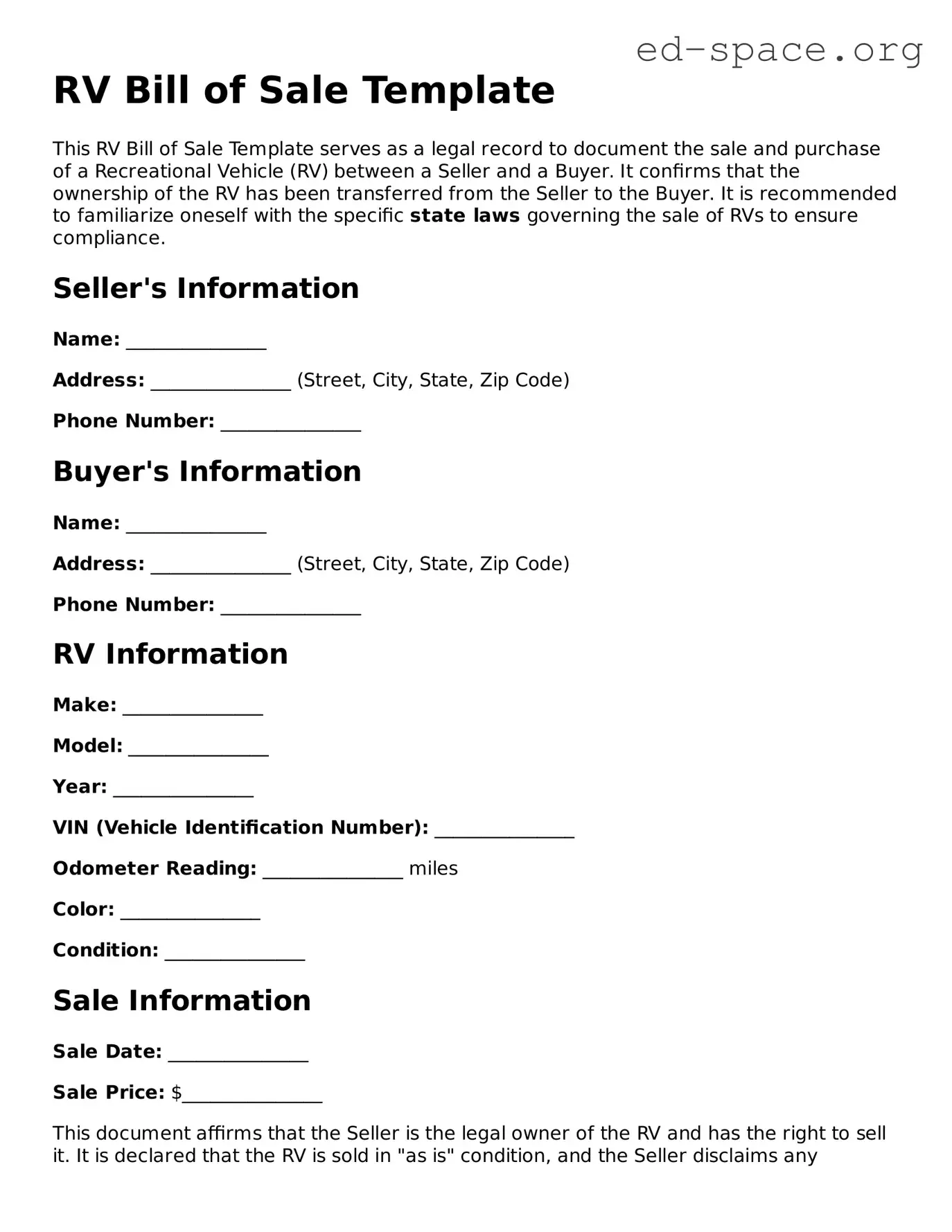RV Bill of Sale Template
This RV Bill of Sale Template serves as a legal record to document the sale and purchase of a Recreational Vehicle (RV) between a Seller and a Buyer. It confirms that the ownership of the RV has been transferred from the Seller to the Buyer. It is recommended to familiarize oneself with the specific state laws governing the sale of RVs to ensure compliance.
Seller's Information
Name: _______________
Address: _______________ (Street, City, State, Zip Code)
Phone Number: _______________
Buyer's Information
Name: _______________
Address: _______________ (Street, City, State, Zip Code)
Phone Number: _______________
RV Information
Make: _______________
Model: _______________
Year: _______________
VIN (Vehicle Identification Number): _______________
Odometer Reading: _______________ miles
Color: _______________
Condition: _______________
Sale Information
Sale Date: _______________
Sale Price: $_______________
This document affirms that the Seller is the legal owner of the RV and has the right to sell it. It is declared that the RV is sold in "as is" condition, and the Seller disclaims any warranties regarding the RV's condition or capabilities. The Buyer accepts full responsibility for the RV once the sale is finalized.
Signatures
Once completed, this document must be signed by both the Seller and the Buyer, acknowledging their understanding and agreement to the terms of the sale. It is also recommended to have the document notarized for additional legal validity.
Seller's Signature: _______________ Date: _______________
Buyer's Signature: _______________ Date: _______________
Notary Acknowledgment (If Applicable)
The following section is to be completed by a Certified Notary Public if the parties choose to notarize this document.
State of: _______________
County of: _______________
On the ____ day of ____________, 20____, before me, _______________ (Notary's printed name), personally appeared _______________ (Seller's printed name) and _______________ (Buyer's printed name), known to me (or satisfactorily proven) to be the persons whose names are subscribed to the within instrument and acknowledged that they executed the same for the purposes therein contained.
In witness whereof, I hereunto set my hand and official seal.
Notary's Signature: _______________ Notary's Printed Name: _______________ Date: _______________
